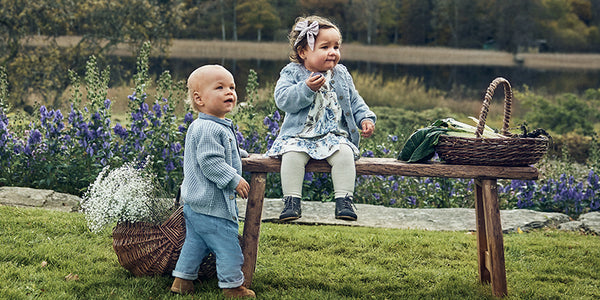Sustainability in production

We continuously work to lessen the environmental load garment production has on the environment– for example, by choosing manufacturing processes which reduce the use of water and chemicals and implementing cleaner production programs for suppliers.
We also carry out regular checks with our suppliers to make sure that they are following our code of conduct for example regarding pay and the workplace environment. This is one example of how we work for better working conditions in our suppliers’ production units.
Newbie is a part of KappAhl Group, to learn more about our social work in production countries read here.
Responsible Wool Standard
Responsible Wool Standard (RWS) is a global standard that deals with the welfare of the sheep and the soil they graze on. The standard ensures that the wool comes from certified farms with every step in the production chain being reviewed by independent third parties.
Recycled Polaymide
Newbie’s commitment to sustainability means we strive to produce items using recycled material which is less resource-intensive than producing material from scratch, helping to reduce pollution, energy consumption and volume of waste.
Our winter overalls are made from Recycled Polyamide which are materials that would otherwise be disposed of, helping to save the planet’s precious resources and contributes to reduced emissions.
Recycled Polyester
Recycled polyester is made from PET bottles and scraps and by-products from the manufacturing industry, as opposed to conventional polyester which is made from oil. Our Recycled Polyester-labelled garments contain at least 50 percent recycled material.
More sustainable denim
Manufacturing denim requires a lot of water. Depending on how the cotton is grown, and choice of the production processes, up to 11,000 litres of water can be used per pair of jeans. Often, production takes place in the world's driest regions where pure water is in short supply. At Newbie we want to help change this. Our More Sustainable Denim are made in organically grown cotton and produced with more sustainable technology in the factory. This means that we are saving water, chemicals and energy from the cotton field all the way to the finished product. With the right care and wash, and by turning them in for reuse or recycling when they’re no longer useful, you will keep saving those precious resources.
